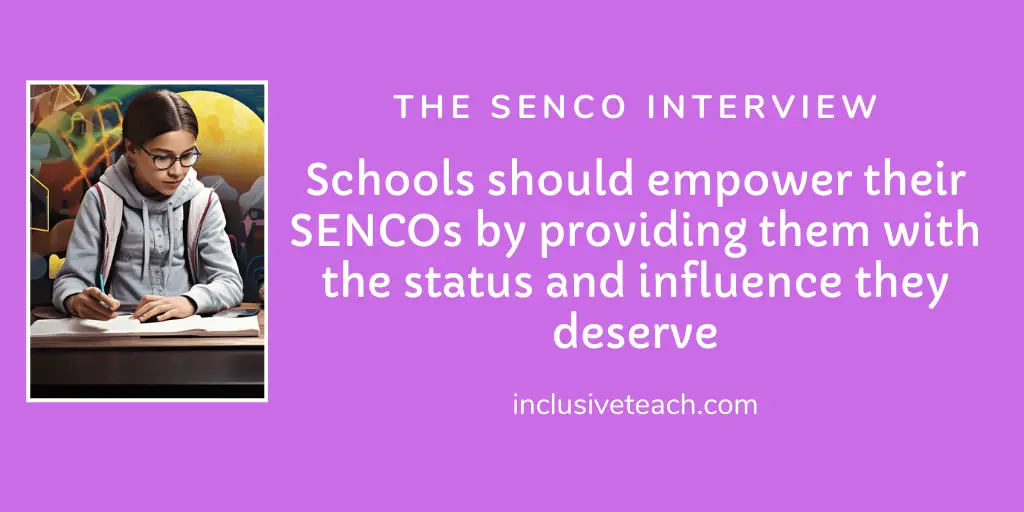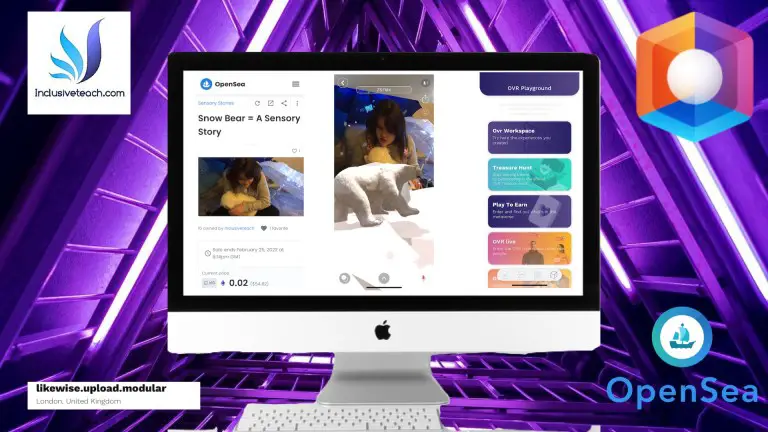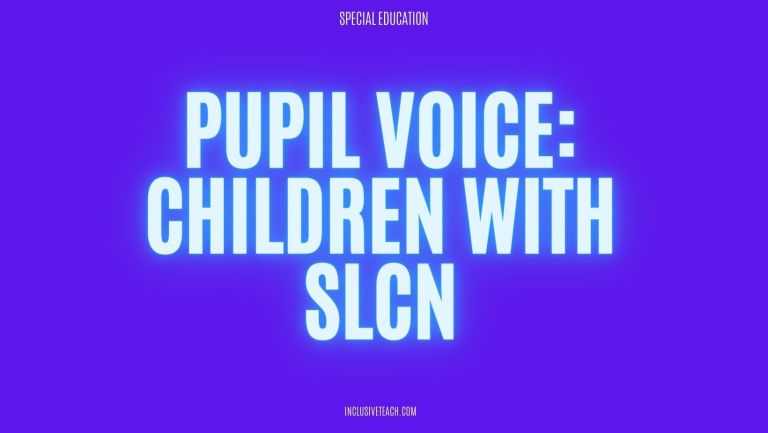16 SENCO Interview Questions and Answers
Things To Know About the Role of a SENCO
What is a SENCO?
A SENCo, which stands for Special Educational Needs Coordinator, is the key leader in supporting students with special educational needs and/or disabilities at their primary or secondary school. The SENCo works to ensure these students receive the right teaching and learning support tailored to their individual requirements. They assist teachers with planning and adaptive teaching in lessons, advising on teaching strategies, managing learning support staff, and liaising with outside agencies.
The overall goal of the SENCo is to help students with additional needs achieve their full academic potential and have a positive, inclusive, educational experience. The job is really challenging and a project by Bath Spa University raised concerns that the role has expanded in responsibility. The education system desperately needs staff in schools that are passionate about supporting children with SEN but please go into the interview with your eyes open. These elements will inform the answers to your interview questions.
Is a SENCO a School Leader
Yes! A SENCO needs to be part of the leadership team, to do their job properly they need the authority to make a significant impact and hold staff to account. This enables them to drive positive change and ensure that the needs of every student are met effectively. With strong leadership backing, the SENCO can inspire and bring about transformation in the school community, ensuring an inclusive and supportive environment for all children.
To ensure a smooth and effective implementation of support for special educational needs, it is vital for the SENCO to hold a prominent and respected position within the school. Recognising the importance of the role, schools should empower their SENCOs by providing them with the status and influence they deserve (Ask about your position within the school if it is not clear).

What are The Key Responsibilities of a SENCO?
For a SENCO the SEN Code of Practice is your bible. It outlines legally what the role entails and the far-reaching areas of influence within the school and how your role fits into the local inclusion program. In May 2023 the government announced its SEND and alternative provision improvement plan, it is worth having a read of this before your SENCO interview for an idea of the national strategy for inclusion and SEN. These are key responsibilities of a SENCO outlined in The SEN Code of Practice.
- Governing bodies and academy proprietors must designate a qualified SENCO for the school.
- The SENCO must be a qualified teacher at the school. A new SENCO must achieve a National Award in SEN Coordination within 3 years. (Soon to be a Leadership NPQ)
- SENCO’s have an important strategic role in the school’s SEN policy and provision and should be part of the leadership team.
- The SENCO has day-to-day responsibility for SEN policy implementation and coordinating support for pupils with SEN.
- Key SENCO responsibilities include: overseeing SEN policy, coordinating SEN provision, advising on SEN support/budgets, liaising with parents/professionals, ensuring Equalities Act compliance, and record keeping.
- SENCOs should have sufficient time and support to fulfil their role. Small primaries can share a SENCO but this should be regularly reviewed.
SENCO Interview Questions
The following are example SENCO interview questions that you may get asked. It is essential to research the school first, online is fine but preferably with an initial visit or at least a phone call with one of the leadership team. This will allow you to identify the school’s priorities and shape your answers to them. It will allow you to think about the current challenges and bring solutions as well as build an initial relationship with people who may be on the interview panel.
16 SENCO Interview Questions and Suggested Answers
This role involves considerable paperwork, staff and parent liaison as well as a teaching component. How good are you at prioritising and meeting deadlines?
What do you understand are the main responsibilities of the SENCO?
A SENCo (Special Educational Needs Coordinator) plays a vital role in supporting students with special educational needs and/or disabilities within a primary or secondary school. Their responsibilities include:
- Identifying Children with SEN:
- The SENCo identifies students who may require additional support due to special educational needs.
- They collaborate with teachers, parents, and external agencies to assess and address individual needs.
- Developing and Overseeing the School’s SEN Strategy:
- The SENCo designs and implements the school’s strategy for supporting students with SEN.
- They ensure that policies and practices align with legal requirements and best practices.
- Designing and Delivering Interventions:
- The SENCo creates targeted interventions to reduce the attainment gap for students with SEN.
- These interventions may focus on academic, social, or emotional development.
- Assessing and Monitoring Progress:
- The SENCo tracks the progress of students with SEN.
- They collaborate with teachers to adjust strategies and interventions as needed.
- Liaising with Headteachers, Class Teachers, and Parents:
- The SENCo communicates regularly with school leadership, class teachers, and parents.
- They provide updates, share information, and collaborate on individual learning plans.
- Supporting Teachers in Effective Teaching and Behavioral Management:
- The SENCo assists teachers in developing inclusive teaching programs.
- They guide effective behavioural management techniques.
- Managing and Advising on the SEN Budget:
- The SENCo oversees the allocation of resources to meet students’ needs effectively.
- They ensure that the SEN budget is used efficiently.
What are the top qualities required to be a SENCO?
This answer has to align with your qualities – choose 4 or 5 and back them up, here are some ideas, but make them your own think “I do this by…”
- Empathy and Compassion:
- A SENCO must genuinely care about the well-being and progress of students with special educational needs (SEN).
- Empathy helps them understand individual challenges and tailor support accordingly.
- Patience and Resilience:
- Working with students who have diverse needs can be challenging. Patience is essential.
- SENCOs encounter setbacks but must remain resilient and focused on positive outcomes.
- Effective Communication Skills:
- SENCOs collaborate with teachers, parents, external agencies, and students.
- Clear communication ensures everyone is on the same page regarding support strategies.
- Organizational Abilities:
- SENCOs manage paperwork, assessments, and individual education plans (IEPs).
- Being organized ensures efficient coordination of resources and interventions.
- Problem-Solving Aptitude:
- SENCOs analyze complex situations, identify barriers, and find creative solutions.
- They adapt strategies to meet diverse needs.
- Advocacy Skills:
- SENCOs advocate for students’ rights and equitable access to education.
- They collaborate with parents and external professionals to secure necessary support.
- Knowledge of SEN Legislation and Policies:
- SENCOs stay informed about legal requirements and best practices.
- They ensure compliance with relevant policies.
- Leadership and Teamwork:
- SENCOs lead the school’s SEN provision, guiding other teachers.
- Effective teamwork ensures holistic support for students.
- Flexibility and Adaptability:
- SENCOs work with ever-changing student needs.
- Being flexible allows them to adjust strategies as required.
- Child-Centered Approach:
- SENCOs prioritise each child’s unique potential and development.
- They champion equal opportunities for all students.
What is your vision for inclusion at our school?
Have a read of this post on different viewpoints on inclusion – it is quite a personal question so make it about you and how your philosophy aligns with the school values.
SEN is a core part of our School Improvement Plan can you tell us about a time you led or contributed to a school improvement initiative or project?
This is about the strategic element of the role. So think about your role in a project you don’t need to have led it you need to have influenced its implementation and outcome.
You will need to be able to articulate how whole-school SEN provision is funded. How would you apply for higher needs funding?
Look at the website for the county council you are applying for a job in. Search “Higher Needs Funding [Council/County name]. Make sure you find out about any upcoming changes.
Can you tell us about any initiatives you have implemented in your current post that have improved outcomes for pupils with SEND?
This is about innovation, initiative and implementing a project. What was the problem, what did you do, what was the impact?
What is your understanding of the EHCP process?
Stick to the facts from the DFE about the EHCP process but talk about proposed changes and as above county specific processes.
Within 3 years you must complete the new NPQSEN (currently NASENCO) how do you approach studying whilst working?
This is to show you know how to manage your time and prioritise.
How would you make sure that all teachers have the knowledge and skills they need to meet the needs of children with SEND?
This is your responsibility to make sure your teachers have the skills they need to meet the needs of SEN pupils. here are some ideas
- Continual Professional Development (CPD):
- Regular Workshops and Training: Organise workshops, seminars, and training sessions on topics related to SEND.
- Collaborate with Specialists: Invite experts (e.g., Specialist Teachers (STLS) educational psychologists, and speech therapists) to share insights and best practices.
- Individualised Support:
- Needs Assessment: Identify teachers’ specific learning needs related to SEND.
- Tailored Training Plans: Develop personalised CPD plans based on individual requirements. These do not have to be extensive just specify some diagnosis to research etc
- Peer Learning and Collaboration:
- Teacher Networks: Encourage teachers to share experiences and strategies.
- SENCo Support: Collaborate closely with the school’s SENCo (Special Educational Needs Coordinator) to provide ongoing guidance.
- Access to Resources:
- Online Portals: Create a repository of resources, case studies, and research articles related to SEND.
- Library of Best Practices: Share successful teaching approaches within the school community.
- Observations and Feedback:
- Classroom Observations: Regularly observe teachers in action, focusing on their interactions with students with SEND.
- Constructive Feedback: Provide specific feedback to enhance their practice.
- Inclusive Curriculum Design:
- Universal Design for Learning (UDL): Train teachers to create flexible, accessible lesson plans.
- Differentiation Strategies: Teach how to adapt materials and activities to meet diverse needs.
- Collaboration with Teaching Assistants (TAs):
- Effective Teamwork: Train teachers and TAs to work together seamlessly.
- Shared Goals: Ensure alignment between teacher and TA approaches.
- Parent and Community Engagement:
- Parent Workshops: Involve parents in understanding SEND and how they can support their child’s learning.
- Community Partnerships: Collaborate with local organisations and support services.
- Reflective Practice:
- Self-Reflection: Encourage teachers to reflect on their experiences, successes, and areas for growth.
- Learning Communities: Create spaces for teachers to discuss challenges and seek solutions.
In our school, we currently have 3 ECTs. Which elements of teaching pupils with SEND do you think staff might have the most trouble with? What training could you offer to support them?
As above but think about what ECTs need to know about SEN first – General strategies before getting into specifics.
When a new pupil starts, how would you assess them?
What would you expect to see from an ‘outstanding’ teacher in relation to SEN provision?
An outstanding teacher of SEN (Special Educational Needs) provision demonstrates exceptional commitment and expertise in supporting students with diverse needs. Here are the key expectations that I have based on the EEF guide – Five evidence-based strategies to support high-quality teaching for pupils with SEND. It is really good if in an interview you can back up your points with research and the EEF should be widely recognised in schools.
- Personalized Approach:
- Individualized Learning Plans: An outstanding teacher tailors teaching strategies, resources, and assessments to meet each student’s specific needs.
- Differentiation: They adapt content, pace, and activities to ensure all students can access the curriculum.
- Inclusive Classroom Environment:
- Positive Atmosphere: The classroom is welcoming, and respectful, and celebrates diversity.
- Universal Design for Learning (UDL): The teacher designs lessons that accommodate various learning styles and abilities.
- Collaboration and Communication:
- Effective Partnerships: Outstanding teachers work closely with parents, teaching assistants, and external specialists.
- Regular Updates: They communicate progress, challenges, and adjustments to support plans.
- Evidence-Based Strategies:
- Research-Informed Practices: They use evidence-based interventions and teaching methods.
- Assistive Technology: Outstanding teachers incorporate technology to enhance learning experiences.
- Monitoring and Assessment:
- Regular Progress Checks: They assess student progress frequently and adjust strategies accordingly.
- Formative Assessment: Teachers use ongoing assessment data to inform teaching decisions.
- Behaviour Management and Emotional Support:
- Positive Behavior Strategies: They implement consistent behaviour management techniques.
- Emotional Well-Being: Outstanding teachers create a safe space where students feel emotionally supported.
- Professional Development and Reflection:
- Continuous Learning: They stay updated on SEN research, attend workshops, and seek professional development.
- Reflective Practice: Outstanding teachers regularly evaluate their practice and seek improvement.
How would you monitor the academic progress of pupils with SEN? What other ways could we measure their progress in different areas?
This depends on the assessment system used by the school. Think about other ways to show progress as well – EHCP targets, Boxhall profiles etc.
How would you involve parents and families in the target-setting and the annual review process?
Bring this one back to parent partnerships, do proactive work such as building a relationship and hosting coffee mornings.
You will work with a governor with responsibility for SEND, can you tell us about a time you have taken part in governor monitoring?
This is a good guide on the role of the SEND governor.
Good Luck With Your SENCO Interview!
We have a number of other posts that will help you ace the SENCO interview questions. The ultimate guide to securing a job in a special school has links to more interview articles and tips that will be applicable to the SENCO recruitment process.








One Comment